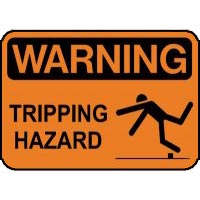Hi, everyone! This is K.T. Bryski, author of Hapax: an end-of-the-world fantasy from Dragon Moon Press. I’m thrilled and honoured to be writing this post; my thanks to Dave and Brion for having me here!
 So, there I was: writing the first scene of the first draft of Hapax. I was bright-eyed and innocent, the scene zipping along beneath my fingers. My monks were preparing to hold vigil to see if the Apocalypse was nigh (spoiler: it was). I had a plot outline, I had character notes, I had worldbuilding…
So, there I was: writing the first scene of the first draft of Hapax. I was bright-eyed and innocent, the scene zipping along beneath my fingers. My monks were preparing to hold vigil to see if the Apocalypse was nigh (spoiler: it was). I had a plot outline, I had character notes, I had worldbuilding…
And then, I realized.
I had forgotten to figure out the monks’ hierarchy. I had no idea who or what their leader was.
Oops.
Don’t Panic
Discovering a mistake or an omission in the middle of writing is not the nicest feeling. Especially if things have been running smoothly up to that point. Still, resist the urge to hit the “delete” key right away. As they say, necessity is the mother of invention. Bring on spur-of-the-moment creativity!
Not wanting to break the flow of that first scene, I slapped a name on the leader and decided he simply wasn’t present at this super-important ritual. “Why not?” my monks (quite rightly) demanded.
This is where mistakes can get interesting. Father Osvald should have been there, and if I’d remembered to create him in the first place, he would have been. But he wasn’t.
“Why not?”
“Because…because, um, he’s really sick.”
Aha. More conflict. Another complication.
Follow Through
Congratulations. At this point, your mistake/omission/contradiction is no longer “your bad.” It’s a choice! A decision has been made! But if it’s really going to add anything, you have to follow through with it. Commit to it. Figure out all the implications of that choice, and how they affect the story you were already telling.
So, Father Osvald, leader of the Ecclesiat, is really sick. So what? So, my protagonist, Gaelin, is burdened with even more stress and doubt. So, with the top spot potentially up for grabs, there’s suddenly lots of political scheming among the monks. So, the wider populace is reading this as an omen and getting agitated.
Oh, look. Now it’s a subplot.
Getting Out of the Box
When there’s a hole in your plot, a gap in your rules, or a contradiction in your character, you need to do something about it. However, the exciting thing about mistakes is that they lead to questions, and questions lead to story development. Did you give a city two different names? No, don’t erase one! Why was it named twice? Who named it? Which name is more popular now, and why?
By making you ask questions, mistakes force you to look at things from another perspective. For those of us who outline, they inject some spontaneous, organic creativity. If it’s a problem you didn’t foresee, you have to work that much harder to resolve it. Usually, that requires expanding your story and its world. That, my friends, is a good thing.
Be Wary of Fools’ Gold
Mistakes are a potential mother lode of literary gold. That being said…don’t be ridiculous. Not every shiny rock is a gold nugget, and not all mistakes are plot points in disguise. In another scene in Hapax, a character worried about getting lost in the City. My editor said something to the effect of, “Wait, doesn’t she work in a library? Wouldn’t wandering around buildings be similar to maneuvering through really tall stacks? And besides, doesn’t she have a great memory and an obsession with detail?”
Right.
Oops.
That was another mistake. Like Osvald’s absence, it didn’t make sense. Unlike Osvald’s absence, there was no good explanation for it. Therefore, instead of making up some elaborate reason why she’d be concerned, I cut the line.
If there is a logical reason that adds to the story, it’s not a mistake, it’s an opportunity.
If there isn’t, you may have some rewriting to do.
I Totally Meant to do That
Guess what? If a mistake works, then after you’ve explained it, after you’ve figured out the effect it has on the story, and after you’ve edited, people probably won’t guess that this symbolism/subplot/character wasn’t intended from the beginning. Examine your errata critically, but keep an open mind. They can provide some of the most pleasant surprises of the writing process.
Have you had any mistakes turn into opportunities? How have you handled them?









Great post, and that’s an interesting way to look at mistakes! I don’t think I would have thought of turning an error into a plot point, ha. That will be a great thing to keep in mind when editing my stories! Thanks for the post K.T.!
–Nathan
I am not a rigorous plotter for this very reason. I will plot a couple of chapters ahead but changes happen as a story progresses and sometimes we are pleasantly surprised at what we find when we get to where that mistake has lead us. If I’ve only plotted a little ahead I don’t feel bad at all for taking this kind of detour and if I find out it’s a dead end so be it. Maybe along the side trail I learned a few things about a character and at the very least I’ve learned something about what won’t work in my story.
I haven’t actually written it yet, but I usually like to plan out my stories way in advance of writing them. In one case, I had a female supporting character who got killed saving the life of a female anti-villain … problem was, as I originally planned it, she saves the anti-villain because she knows the latter is destined to help the male protagonist. At some later point I realized this scenario is kinda sorta massively sexist.
Sometime after that, I realized I could actually make the scenario work just fine – I just had to change the supporting character’s motivations. Instead of having her sacrifice her life for a male character and ultimately the greater good (which is pretty impersonal), I could have her do it for the sake of saving one fairly nasty person because – as bad as she is – she doesn’t deserve to be murdered (which is a much more personal motivation). I also decided I would break one of my writing rules and give my supporting character a dying speech where she basically says that yeah, it sucks how she’s dying and all, but she still did the right thing, lived her life well, and if she had it to do all over again, she’d do it exactly the same.
As a result, I’ve grown very fond of the character, and I can’t wait to get around to writing that death scene. So there we have an example of a bland and problematic scenario transformed into something which should make for an epic final exit for a character.